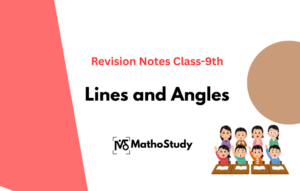Limits and Derivatives with MCQ type Questions
What is Limit ?
What is Derivative ?
Derivative Rules
1.The power rule-
\(\frac{d}{dx}[x^n]=nx^{n-1}\).
2.The Sum and Difference rule-
\(\frac{d}{dx}[f(x) \pm g(x)]= f'(x) \pm g'(x) \).
3.The product rule-
4.The quotient rule-
5.Chain Rule- The chain rule is used to find the derivative of a composite function. If \(y=f(g(x))\), then
\(\frac{dy}{dx}\) =\(\frac{dy}{ dg} . \frac{dg}{dx} \).
20 MCQ and Answers on Limit and Derivative
- What is the limit of \( \lim_{x \to 3} (2x – 1) \)?
(a) 4 (b) 5 (c) 6 (d) 7
- What is the limit of \(\lim_{x \to \pi} (cos(x))\)?
(a) -2 (b) 0 (c) -1 (d) \(\infty \)
- What is the derivative of \(f(x) = 3x^2 – 5x + 2\)?
(a) \(6x – 5\) (b) \(3x^3 – 5x^2 + 2x\) (c)\(6x^2 – 5x\) (d) \(3x – 5\)
- What is the limit of \( \lim_{x \to 0} \frac{\sin(x)}{x} \)?
(a) 0 (b) 1 (c) \(\infty\) (d) \(-1\)
- What is the limit of \(\lim_{x \to 0} \frac{1 – \cos(x)}{x^2}\)?
(a) \(\frac{1}{2}\) (b) 1 (c) 2 (d) 0
- What is the derivative of \(f(x) = e^x\)?
(a) \(e^x\) (b) \(x \cdot e^x\) (c) \(1/x\) (d) \(e^{x-1}\)
- What is the limit of \( \lim_{x \to 2} \frac{x^2 – 4}{x – 2} \)?
(a) 2 (b) 4 (c) 0 (d) 3
- What is the derivative of \(f(x) = \ln(x)\)?
(a)\(\ln(x)\) (b) \(1/x\) (c) \(\frac{1}{2x}\) (d)
x - What is the limit of
\( \lim_{x \to \infty} \frac{2x^2 + 3x – 5}{x^2 – 2x + 1} \)?(a) 2 (b) 3 (c) 1 (d) 0
- What is the derivative of \(f(x) = \cos(x)\)?
(a) \(-\sin(x)\) (b) \(\cos(x)\) (c)\(\frac{1}{x}\) (d) \(\cos(x) – \sin(x)\)
- What is the limit of \(\lim_{x \to -2} \frac{x^2 + 4x}{x + 2}\)?
(a) 0 (b) 1 (c) -1 (d) Undefined
- What is the limit of \(\lim_{x \to 2} \frac{x^3 – 8}{x – 2}\)?
(a) 10 (b) 12 (c) 5 (d) 21
- What is the limit of \(\lim_{x \to 0} \frac{\sin(2x)}{x}\)?
(a) \(1/2\) (b) 2 (c) -1 (d) 0
- Find the limit as x approaches infinity for the function \(f(x) = \frac{x^2 + 3x – 1}{2x^2 – x + 2}\)?
(a) \(1/2\) (b) 2 (c) \(\infty\) (d) -1
- What is the limit of \(\lim_{x \to -2} \frac{x^2 + 4x+1}{x^2 + 2x}\)?
(a) -1 (b) 0 (c) 1 (d) \(\infty\)
- What is the limit of \(\lim_{x \to 0} \frac{cosecx}{1/x}\)?
(a) 0 (b) 1 (c) -1 (d) -2
- What is the limit of \(\lim_{x \to -1} \frac{x^3 + 1}{x^2 – 1}\)?
(a) 0 (b) -1 (c)\(-3/2\) (d) -2
- What is the limit of \(\lim_{x \to 4} \frac{\sqrt{x} – 2}{x – 4}\)?
(a) 0 (b) \(1/4\) (c) 4 (d) Undefined
- What is the limit of \(\lim_{x \to 0} \frac{ sin(5x)}{3x}\)?
(a) 1 (b) \(3/5\) (c) \(5/3\) (d) 5
- What is the limit of \(\lim_{x \to 0} \frac{\tan(x)}{x}\)?
(a) 0 (b) 1 (c) -1 (d) Undefined
Answers- (1) b (2) c (3) a (4) b (5) a (6) a (7) b (8) b (9) a (10) a (11) a (12) b (13) b (14) a (15) d (16) b (17) c (18) b (19) c (20) b




